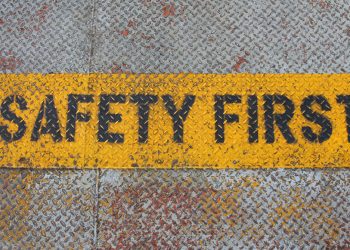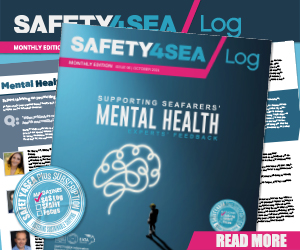Investigations into human element incidents identified fatigue to be a major contributing factor to maritime accidents. In fact, human error because of fatigue has long been regarded as contributing to the majority of incidents in the shipping sector. Taking that into consideration, let’s explore what causes fatigue to seafarers and how they mitigate its effects.
Diagnosis of fatigue
As Andrew Russ, Marine Surveyor at Standard P&I Club has explained to SAFETY4SEA, fatigue has been found to be the major contributing factor in 82% of the 66 recorded groundings and collisions occurring between 0000 and 0600 hours, according to UK MAIB.
Namely, human error has long been regarded as contributing to the majority of incidents in the shipping sector. In fact, it is estimated that 75% to 96% of marine accidents can be attributed to human error.
In addition AGCS analysis of almost 15,000 marine liability insurance claims between 2011 and 2016 shows that human error is behind 75% of the value of all claims analysed, equivalent to over $1.6bn.
For this reason, an official diagnosis of fatigue is crucial. While there is no single test to confirm a diagnosis of chronic fatigue syndrome, symptoms can mimic those of many other health problems, including:
- Sleep disorders: Chronic fatigue can be caused by sleep disorders. A sleep study can determine if your rest is being disturbed by disorders such as obstructive sleep apnea, restless legs syndrome or insomnia.
- Medical problems: Fatigue is a common symptom in several medical conditions, such as anemia, diabetes and underactive thyroid (hypothyroidism). Lab tests can check your blood for evidence of some of the top suspects.
- Mental health issues: Fatigue is also a symptom of a variety of mental health problems, such as depression and anxiety. A counselor can help determine if one of these problems is causing your fatigue.
Key factors of fatigue onboard
Seafarers who are fatigued may experience diminishing cognitive ability, and a loss of interest in their work, which could endanger themselves, their colleagues, the ship they are operating, and the wider marine environment. The most common reasons why a seafarer might be prone to fatigue are the following:
#1 Lack of sleep
Only sleep can maintain or restore your performance level. When you do not get enough sleep, fatigue will set in and your alertness will be impaired.
#2 Poor quality of rest
Disturbances while resting such as being woken up unexpectedly, on call (during port operations), or unpredictable work hours (when arriving in port) can cause fatigue.
#3 Stress
Stress can be caused by personal problems (family), problems with other shipmates, long work hours, work in general, etc. A build up of stress will cause or increase fatigue.
#4 Boring and repetitive work
Boredom can cause fatigue. You may become bored to the point of fatigue when your work is too easy, repetitive and monotonous and/or bodily movement is restricted.
#5 Noise or vibration
Noise or vibration can affect your ability to sleep/rest, and it can affect your level of physical stress, thus causing fatigue.
#6 Malnutrition
Refined sugars (sweets, doughnuts, chocolates, etc.) can cause your blood sugar to rise rapidly to a high level. The downside of such short term energy is that it usually results in a rapid drop in blood sugar. Low blood sugar levels can cause weakness, instability and difficulty in concentrating and in the extreme cases unconsciousness. Eating large meals prior to a sleep period may disrupt your sleep.
#7 Medical conditions and illnesses
Medical conditions (i.e. heart problems) and illnesses, such as the common cold, can cause or aggravate fatigue. The effect depends on the nature of the illness or medical condition, but also the type of work being carried out. For example, common colds slow response time and affect hand-eye co-ordination.
However, despite the importance of all those factor, the number one cause of fatigue amongst seafarers is the excessive work load. Working consistently “heavy” workloads can cause fatigue. Workload is considered heavy when one works excessive hours or performs physically demanding or mentally stressful tasks.
Excessive work hours and fatigue can result in negative effects such as the following:
- Increased accident and fatality rates
- Increased dependence upon drugs, tobacco or alcohol
- Poor quality and disrupted sleep patterns
- Higher frequency of cardiovascular, respiratory or digestive disorders
- Increased risk of infection
- Loss of appetite
The above can get worse because of insufficient rest time between work periods. As a matter of fact, apart from sleep, taking a break between work periods can contribute to restoring seafarers’ performance levels. Insufficient rest periods or postponing assigned rest times (to finish the job early) can cause fatigue.
How to combat fatigue
While seafarers work in a heavily regulated industry, facing a workload that is physically and mentally challenging, the good news is that there is plenty that can be done to help combat fatigue.
#1 Fighting fatigue from shore
Ship owners and managers must ‘own’ fatigue and tiredness management. This can be done through ship design, crewing levels, workload, food provision, exercise facilities, sleeping arrangements and training the crew about dangers and mitigation.
#2 Know the signs
Mariners must be aware of how to recognise fatigue in themselves and others. Manage time as best as possible, adjust watches when necessary, get support if needed, keep accurate accounts of work and rest and notify the DPA if required.
#3 Monitor mental health
Not only can fatigue lead to physical health issues, but also mental stress. Issues such as relationship problems, either onboard or with family/friends, can also lead to mental fatigue. Be sensitive to this in yourself and others.
#4 Share your issues
No-one is immune to tiredness and fatigue, so discuss these issues with the whole crew and watch out for each other. A poor decision made by one person can affect everyone.
#5 Exercise
Maintaining activities that are tolerated is important to prevent deconditioning. Exercise programs that start at a very low intensity and increase very gradually over time may be helpful in improving long-term function.

































































